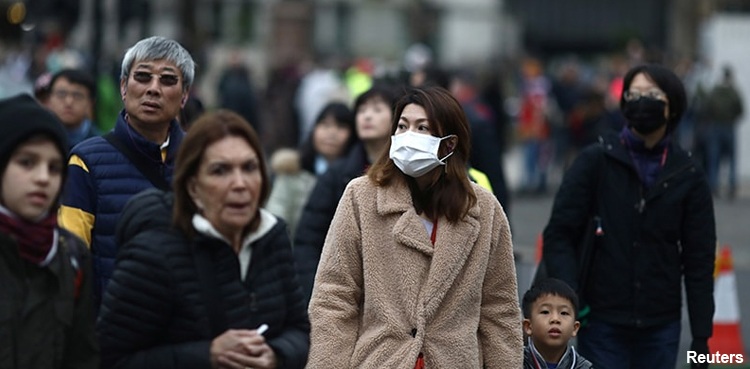Europe tightens coronavirus measures as cases surge

PARIS: Europe tightened restrictions on Friday as it battled a surge in coronavirus cases, with masks becoming obligatory all over Paris and Hungary shutting its borders once again.
German Chancellor Angela Merkel warned the crisis will be “more difficult” in the autumn and winter.
President Donald Trump took a characteristically more optimistic view, despite the death toll in the United States topping 180,000, as he vowed to “crush” the virus with a vaccine by the end of the year.
The total number of declared cases has now topped 24.5 million globally since the virus first emerged in China almost nine months ago, with more than 832,000 deaths.
The economic toll has been catastrophic, with Canada the latest to announce a record collapse: a 38.7 percent drop in GDP in the last quarter on an annualised basis.
Canada also extended the closure of its border to non-essential travel by a month until the end of September. The border has been closed to all non-essential travellers since mid-March.
Governments hope tighter mask rules will offset the need for a return to economically-devastating lockdowns, though the French government said it could not rule out new stay-at-home orders.
Read more: Novavax expects filing for COVID-19 vaccine approval in Dec
Masks were already obligatory in Paris on public transport and in congested areas, but will now be needed throughout the city.
“The epidemic is gaining ground, and now is the time to intervene,” said Prime Minister Jean Castex.
Late Friday, health authorities said almost 7,400 new infections were registered in mainland France in 24 hours, calling growth in new cases “exponential”.
Hungary said foreigners would be barred from entry from September 1, while returning citizens would need two negative tests to avoid a 14-day quarantine.
Greece said it was extending a lockdown on migrant camps to at least September 15, amid ongoing concerns over the spread of the virus in hugely overcrowded camps on five Aegean islands.
Many governments must also confront a backlash.
Spanish police arrested a man who believes the pandemic is a hoax, and used social media to incite violence against politicians, including Prime Minister Pedro Sanchez.
A Berlin court on Friday allowed a demo of coronavirus sceptics to go ahead this weekend, with police vowing a show of force to ensure safety regulations are met. A similar protest is planned in Zurich.
Merkel warned the battle against the virus is “likely to be more difficult over the next few months” as people start spending more time indoors.
She and state leaders agreed Thursday to toughen face mask rules and ban large events until the end of the year to combat rising case numbers blamed mainly on summer travel and private parties.
Austrian Chancellor Sebastian Kurz also warned of “challenging” months ahead but predicted a return to “normal” next year.
The Spanish government said this week children as young as six will be required to cover their nose and mouth at school, while Britain reversed earlier guidance that pupils aged 11-18 did not need to wear masks.
South Korea also decided Friday to tighten measures, including shutting indoor sports venues, in the greater Seoul area, home to half the country s 52 million people after a spate of new clusters, many linked to church gatherings.
The US is by far the hardest-hit country in the world in terms of both number of cases and deaths.
“We are marshalling America s scientific genius to produce a vaccine in record time,” Trump said as he accepted the Republican nomination for a second term.
“We will have a safe and effective vaccine this year and together we will crush the virus.”
But vast economic damage has already been done. On Friday, hotel and casino giant MGM Resorts announced 18,000 lay-offs.
Japan said it will lift a re-entry ban on foreigners from next month amid efforts to rebuild the virus-hit economy but would maintain rules to keep the disease at bay.
It has been hit less hard than most advanced economies by the coronavirus, with just over 65,000 cases, and around 1,200 deaths.
The British government urged people to return to work amid concern about the impact of the lockdown on the economy and struggling high street businesses.
An industrial body forecast this week that the UK economy will lose about 22 billion pound ($29 billion, 24 billion euros) this year.
Bolivia said it will ease virus curbs from next week while maintaining border closures.
People and vehicles will be allowed to circulate for longer periods, between 5:00 am and 8:00 pm — an extension of two hours from current rules — and a weekend prohibition on movement will be lifted on Saturdays.
The post Europe tightens coronavirus measures as cases surge appeared first on ARY NEWS.
Comments
Post a Comment